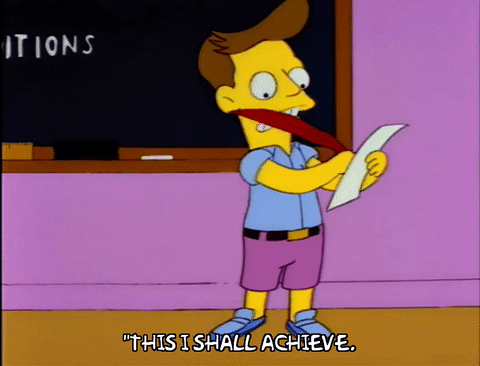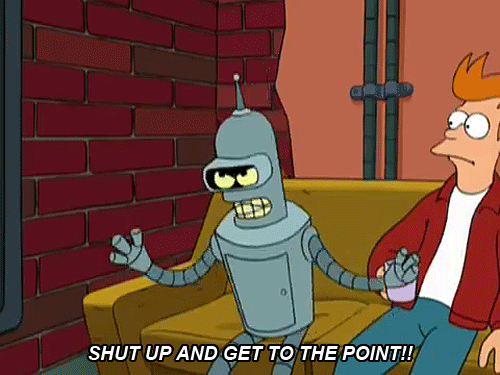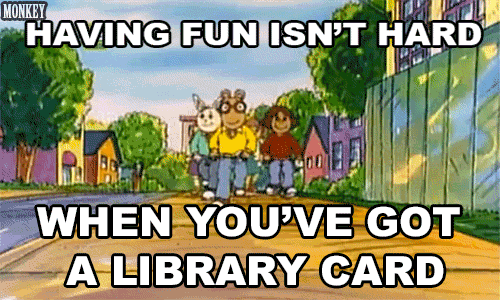Content writing tips to make you look smarter
Motum B2B’s content team shares some tasty tidbits for clearer, more direct writing

As content creators for a B2B marketing agency, we interact with tons of incredibly knowledgeable people — chemists, engineers, software developers… you name it.
Part of our job is akin to translation: we take a highly technical subject, with all the complex processes and industry jargon behind it, and make it palatable for a broader audience. We take all that in-depth knowledge and distill it down to its most valuable takeaways.
 Footage of our copywriter working on this blog.
Footage of our copywriter working on this blog.
Why? Because when your customers open an email newsletter, they don’t want to read a PhD dissertation. They want a straightforward breakdown of what’s relevant to their business.
Clear, concise writing makes that easier to communicate. You also want to make sure you’re using idioms and common phrases correctly.
Here are some writing tips to help you with all of that.
In general, opt for “use” over “utilize”
“People misuse the word utilize,” says Corinne Lynds, Editorial Director at Motum B2B. “It actually has a different meaning, but people use the two terms interchangeably to sound smart.”
Choose “use” when you’re talking about making use of something and choose “utilize” to use something in a way that differs from its original purpose.
“For example, I could use my paddle to row a boat, or I could utilize my paddle as a hammer to hit nails into the wall,” Corinne explains.
That’s not the best way to hang a picture frame, but it’s the only correct way to use “utilize.”
Flowery writing obscures meaning

“Utilize” is also an example of a word that sounds more professional, formal or academic, presumably because it has more syllables than “use.” In practice, cumbersome words make it more painstaking to parse meaning, which isn’t super helpful in marketing (or most other forms of communication).
To quote Strunk and White in The Elements of Style: “Avoid the elaborate, the pretentious, the coy and the cute. Do not be tempted by a twenty-dollar word when there is a ten-center handy, ready and able.”
Arbitrarily capitalize the wrong Letters for Emphasis
There are lots of things you can do for emphasis: use italics, play with word choice, use an exclamation mark, or tailor the length and rhythm of your sentences (pro move).
Never capitalize the first letter in a word because you think the word is important! It’s only grammatically correct if the word is a proper noun or you’re using title case in a title.
Just stop it with “just”
“Just” is a fluffy, puffy filler word. We use it all the time without thinking about it, but it’s worse than useless: it weakens your statements.
“Let’s say you’re typing an email that starts with, ‘Hey, I’m just reaching out to see if you’re available,’” Corinne says. “People, particularly women, add ‘just’ because they don’t want to sound bossy, but it comes across as apologetic. You’re allowed to ask!”

Cut to the chase
Phrases like “designed to” or “allows us to” are padding; they add length to a sentence without clarifying or elaborating on its message.
“If something performs a specific function, it just does it,” says Michael Ouellette, Senior Copywriter at Motum B2B. “Tell us what it does and move on.”
No double space after a period
This is a relic from the typewriter’s heyday, when the typeface gave an equal amount of space to every character (it’s called “monospace”). Two spaces after a period kept things looking tidy back then, but it doesn’t make much sense with today’s proportional fonts.
We won’t share a link to support any of that, because they’re all unnecessarily vitriolic. You can Google it. Seriously, though: nothing grinds our gears more than that dreaded double space after a period.
“Like” or “such as”?
Corinne breaks it down in a simple way: use “such as” when giving an example. Use “like” when you’re making a comparison.
For instance, “I enjoy the company of small dogs, such as beagles, pugs and chihuahuas.”
“My love is like a red, red rose” is an example of a comparison (and, incidentally, a poem Corinne can recite from memory).
Alliteration adores amicable aardvarks

Alliteration is a rhetorical figure of speech. As such, it’s not inherently incorrect and the Content Police won’t arrest you for using it, but you have to know what you’re doing. Otherwise you get an awkward, almost nauseating turn of phrase.
As Michael puts it, “Leave it to the professionals.”
“Down the pipe” or “Down the pike”?
Look, here’s how it is. The phrase was originally “coming down the pike,” as in turnpike. People started confusing it with “Coming down the pipeline.” That’s understandable, right? But the internet rages with debates over this phrase.
There’s no winner or loser: “pipe” earned its place alongside “pike” through the nebulous force of common usage. That’s how “Googling” made it into the dictionary, after all.
…but you don’t really need to know this
If all this sounds boring and pedantic, well, to each their own. As content people, we live and breathe this stuff. We’re here to fuss over the minutiae of language so you can get back to selling, marketing or building things with science.
Want to talk about how that might look for your company’s content feed or weigh in on the “pike” vs. “pipe” debate? Feel free to get in touch.